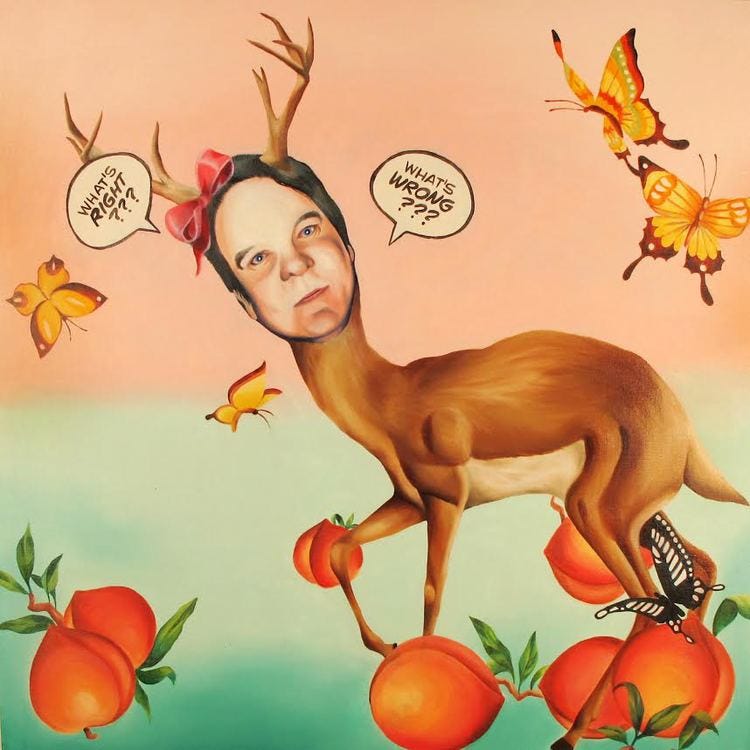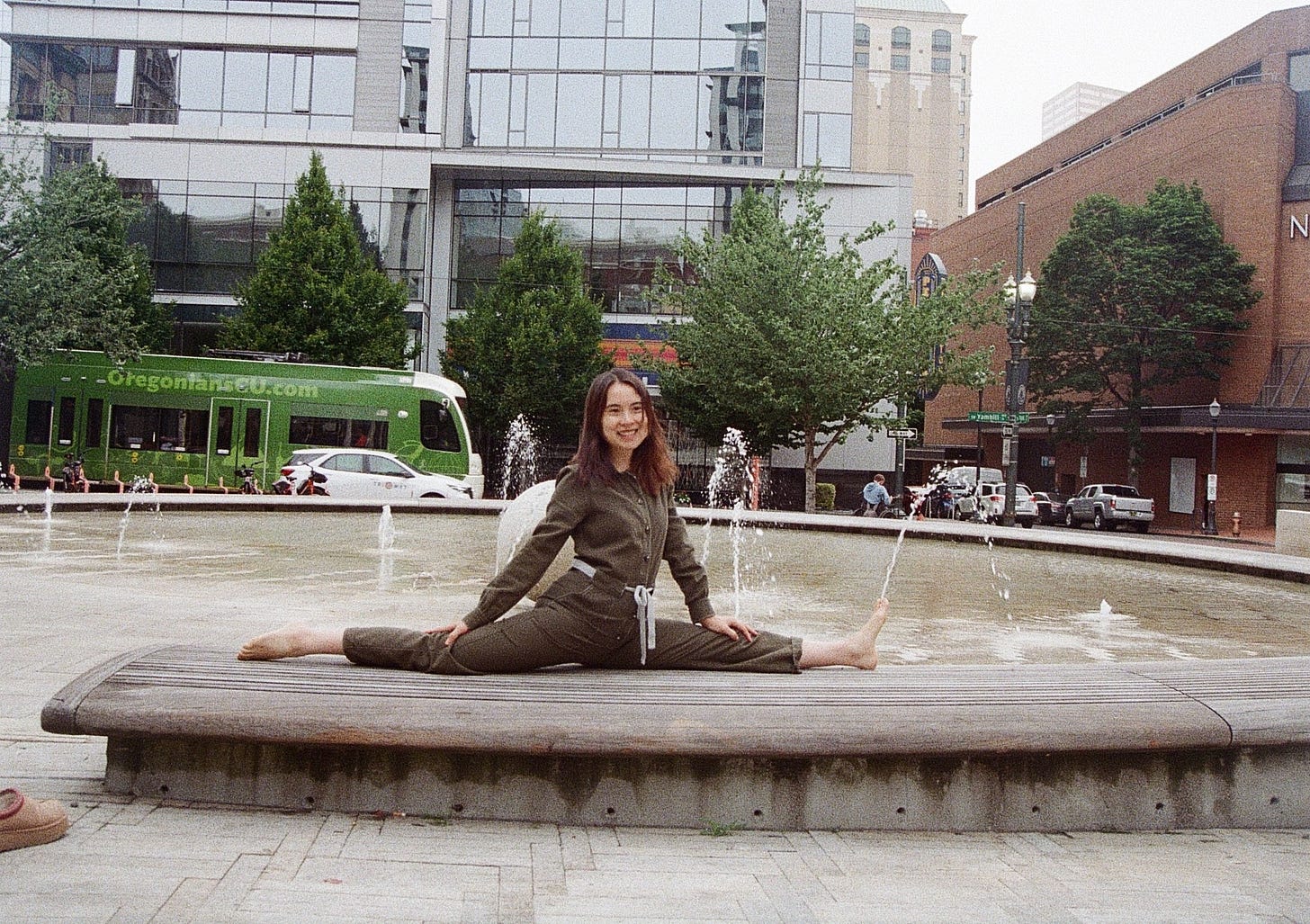Went to Living Room Theater yesterday—watched a movie just to relish the event of going to the movies: sitting in the dark, with a friend, eating the burritos we hid in our tote bags together. If the movie is ‘good’1 —that's a bonus. BUT—setting aside my faith in the democracy of taste—The Life of Chuck was BAD.
However, it did remind me of a couple of things I like to remember:
(1) I may be a figment of someone else's imagination; my life may not be "mine" at all, but the dream of larger and more sensitive organism, as the famous Daoist fable of the butterfly goes:
"Once Zhuang Zhou dreamed he was a butterfly, a butterfly flitting and fluttering around, happy with himself and doing as he pleased. He didn't know he was Zhuang Zhou. Suddenly he woke up, and there he was, solid and unmistakably Zhuang Zhou. But he didn't know if he were Zhuang Zhou who had dreamed he was a butterfly or a butterfly dreaming he was Zhuang Zhou."
(2) The movie begins with an abridged recitation of Walt Whitman's Leaves of Grass. “I am large, I contain multitudes.” This quote, like Yeat's "The center cannot hold," is so oft-quoted that is close to becoming hackneyed, and yet I need it. I need it when I get worked up over silly little things like when I notice how a friend is checking facebook marketplace when I'm trying to have a conversation. I need it when I become over-identified with being an outsider/Other (too Chinese to be white, too white to be Chinese, the self-negating White Person of Color) or a wild-eyed and emotionally unstable rebel or a phlegmatic spiritual perfectionist2 or even an artist (let's be real, nobody is on the edge of their seat waiting for my next substack or book to come out).
I am large, I contain multitudes: to make the mind large is to grow up and beyond our wounded, skin-starved selves that can't help but stomp and demand more love.3 Space heals, and mature love demands spaciousness. Walt Whitman reacquainted me with the reality that I am complete, that the missing puzzle pieces I am searching for are inside of me.
(3) Make time to dance.
"Why did he stop to listen & why did he start to dance?" says the corny omniscient narrator.
Lorrie Moore's Dance for America begins with the maxim, “I tell them dance begins when a moment of hurt combines with a moment of boredom. I tell them it's the body's reaching, bringing air to itself.” Dance is the ultimate defense against small mindedness. It is the breaking out of the plastic packaging of capital, it is a volcanic thrust out of the assumptions we're drenched in. It is an act of surrender to dance fiercely, with aerobic technique. Who cares what the stiff, timorous gawkers watching think; who cares if nobody is watching? To sashay down the aisles of Marshalls (true story) is to turn away from convention, and turn towards the world: here it is, all around us, all the time, waiting for us to wake up and flirt with its beauty.
“Bad taste is real taste, of course, and good taste is the residue of someone else's privilege.” –(Dave Hickey, Air Guitar: Essays on Art and Democracy)
I am reading Roland Barthes’ A Lovers Discourse, and couldn’t resist including his fragment on the ascetic: “Since I am guilty of this, of that (I have—I assign myself—a thousand reasons for being so), I shall punish myself, I shall chasten by body… devote myself to the study of some serious and abstract branch of learning. I shall get up early and work while it is still dark outside, like a monk. I shall be very patient, a little sad, in a word, worthy, as suits a woman of resentment… This will be a gentle retreat; just that slight degree of retreat necessary to the proper functioning of a discrete pathos.”
“There’s no help for it: I love you is a demand: hence it can only embarrass anyone who receives it, except the Mother — and except God!” (Roland Barthes by Roland Barthes)








I’m still so impressed by your splits
I love this so much